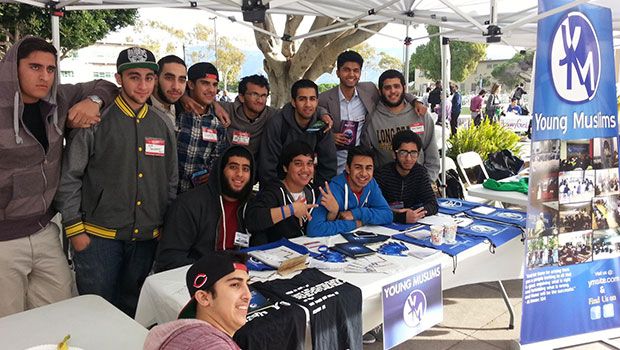Laws alone can never bring about full peace and security. This is a very important reality that sets Islam apart from all human attempts at establishing law, order, safety, and harmony in society. The first and most important factor that contributes to peace and security has to do, not with laws, but with what is in the hearts of the people. The ultimate goal of Islamic law is to establish, strengthen, and support the faith in individuals and in the community as a whole. This faith brings peace into the heart by which animosity and violence-prone feelings toward others are curtailed.
Integral to this faith is the implanting of taqwa (God-consciousness, love and fear of God, and piety) into the hearts of individuals. As such, this taqwa-constituted faith brings peace, as noted above, but also restrains actions. The individual behaves according to a set of general principles which impel him forward to the good and restrain him from evil. If he is disgruntled, for example, he understands that he does not have the right to go to his workplace and start shooting at everyone in sight, as has happened on more than one occasion in the United States in recent years. The limits placed upon his behavior by divine dictum, having been assimilated into his personality and character, predispose him to salutary choices and thus ensure the peace and security of home, workplace, and society at large.
Life’s Purpose
Faith, and the taqwa that proceeds from it, provide a purpose to man’s life and confer nobility upon the human condition. This life is not meaningless. It is not the result of some random explosion of matter and evolutionary combining of elements that over eons brought about the issuing of human beings from animal origin. Realizing the divinely decreed origin, obligation, and destiny of humankind, in itself, has a profound effect on an individual’s self-perception and actions.
This author has had personal experience working in prisons in the United States. Upon asking numerous inmates why they committed their crimes, the response was often, “Why not?” The only question to them was whether they could get away with the criminal act and not get caught. There was no concern about responsibility towards the Creator; nor did they have any sense of purpose in this life. In fact, there is no cogent argument against criminal behavior or any other anti-social behavior if the premise is a purposeless existence within a universe that is the result of mere chance. The only persuasive argument against illicit or immoral behavior comes from belief in God’s laws and embracing of the boundaries imposed on human behavior with the aim of facilitating goodness and constraining iniquity.
There is a great lesson in the prohibition of alcohol in the United States enacted in 1919. This law was passed as a result of widespread drunkenness and its associated increases in crime and violence. Even though people could see the wisdom of the law and believed in its necessity, many did not have a compelling inner directedness that led them to obey the law. Conversely, when there is belief in God’s law, and taqwa at the core of one’s personality and character, there develops in the heart antipathy for the act that is banned. The believer recognizes that the act is evil and, even worse, is displeasing to his Lord.
With a worldview that rests on existential meaningfulness and purpose, the believer restrains himself to the best of his ability from all forbidden actions, resulting in greater peace and security for himself and others.
Community Spirit
In recent years in the United States, as a reaction to the breakdown of law and order, many communities instituted what is known as “neighborhood watches.” Individuals in the local community take turns keeping an eye on things in the neighborhood. The goal is not simply to spot unusual or suspicious activity but to bring people together in a cooperative program of watching out for one another, caring about one’s neighbors, and protecting the safety and security of their neighborhood.
This objective is very Islamic, as community spirit — brotherhood and sisterhood — is central to the tenets of Islam. This is part of the principle of enjoining the good and forbidding the evil. The spirit of fellowship is permeated by the Islamic obligation to look out for one another, encourage one another to do good and prevent one another from doing evil. Through this camaraderie of shared beliefs, interests, and goals, believers help each other on the Straight Path, overcome their weaknesses, and aspire to good.
Thus, God says: “The believers, men and women, are auliyaa (helpers, supporters, friends, protectors) of one another; they enjoin what is good and eradicate what is evil…” (Qur’an 9:71). In this regard, the Prophet (peace be upon him) said: “The believer with respect to another believer is like a building — one portion strengthening the other” (Al-Bukhari and Muslim).
This proactive and supportive relationship among individual members of society, and particularly among believers, further protects and promotes peace and security in this world. However, Islam encompasses the concerns of both this life and the Hereafter, interlocking the two abodes. Knowing that guidance comes from God — and can only come from God — the believer searches for solutions to society’s problems, all the while searching his or her own soul with honesty and exactitude in order to correct errors and purify the heart. Through faith and the God-consciousness that ensues, such individuals strive to live humbly and piously. With an eye on earning their reward in the Hereafter, they love and fear God in such deep and abiding a manner that their daily living contributes to the peace and security that all societies, all families, all men, women, and children yearn for.
This article was originally published in www.islamreligion.com.






